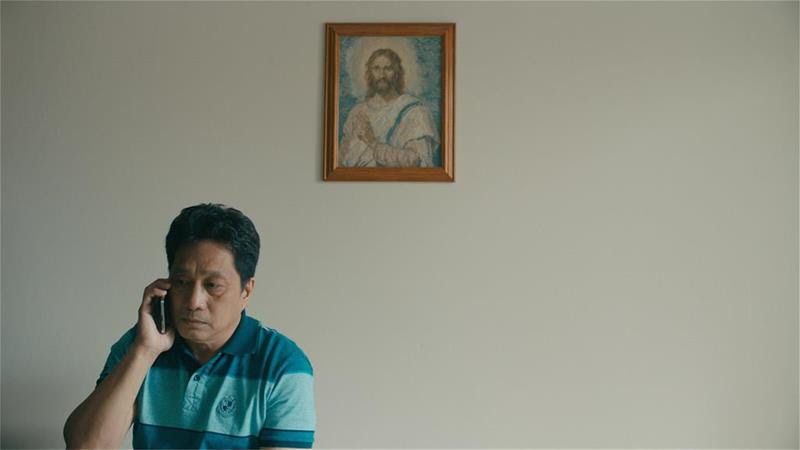What to Watch Verdict
Islands is a beautifully crafted film, immersing us in the life of a timid, middle aged immigrant. With immense empathy for his fears, the film centers his journey of personal growth.
Pros
- +
🏝Empathetic look at the difficulty of personal growth
- +
🏝Gorgeous and effectively intentional visuals
- +
🏝Reflects universal fears through a unique, immigrant-specific narrative
Cons
- -
🏝 So restrained that we miss opportunities for real insight into Joshua’s emotional state and Rogelio Balgatas' performance.
Islands is part of our SXSW 2021 coverage. You can find all of our reviews here.
Grappling with the looming weight of the future, Islands is an insightful examination of our collective fear of loneliness. In quiet moments of reflection, the film manages to be shockingly confrontational - demanding we acknowledge the dread that often hangs over us. What happens if everything changes? Who will I be without the people around me? At fifty-years old, Joshua (Rogelio Balgatas) has no choice but to ponder these questions himself.
A timid, middle aged Fillipino immigrant, Joshua has never lived outside the comfort of his parents home. Their constant companionship is his normalcy; his mother still cooks for him while tending to his father. When he returns from work, he helps them as needed, including errands and outings to a local community center. This routine is an oasis of sorts, that Joshua is in no rush to disrupt - unfortunately, the harsh reality of time is unconcerned with his desires. When their health suddenly declines, he finds himself praying for things to settle back into place, plagued by the thought of being left alone.
Director Martin Edralin’s stunning visuals go a long way in constructing Joshua’s world. His parents home is tangible in its warmth, with light flooding the rooms they inhabit together, welcoming us into their lives. Just as effective is the distinct loneliness that hovers when the space is emotionally altered. Joshua’s anxiety takes over the home, his fear distinctly evocative as mortality looms too large to ignore. The changes to Joshua, much like his home, are gradual and quiet. Forced to figure out how to take care of his parents, as well as himself, Joshua’s personal growth becomes a major focal point. Backed into a corner, he must come to terms with reality to continue pushing forward. Helping him through this process is his cousin Marisol (Sheila Lotuaco), who arrives to assist in caring for his parents.
With Marisol, the home regains some of its warmth — but always with empathy in place of simplicity. Marisol’s story carries its own complexities and, despite her assistance, Joshua must learn the balance of relying on others. Navigating the complex dynamic of their bittersweet relationship and the difficult subject matter of mortality and family, Edralin operates with noticeable restraint.
His subtlety lends itself exceedingly well to the heavy narrative, making an exploration of our greatest worries palatable without diminishing them. Joshua’s fears may be specific to his life, but are universal at their core. Though rarely spoken out loud, his anxieties are always shared, as though we’re holding our breath alongside him, fearing for the worst. On the other hand, this restraint sometimes means sidestepping moments of emotional depth. In Balgatas’ performance, we glean Joshua’s immense vulnerability; often on the edge of making those emotions explicitly, with no release. Given all that he does reveal on screen, this feels like a lost opportunity for Balgatas to elevate the character even further.
Still, Islands has no trouble communicating a complex emotional scope. Ever consistent is the film's thematic understanding. As the world changes around Joshua, he pleads and begs, “I don’t want to be alone.” His words hit with a certain sharpness, the same precision evident throughout Edralin’s film. However unconscious, Joshua’s thoughts are exceptionally universal and beautifully human - and though the narrative aches with his melancholy, a sense of hope is always present.
The latest updates, reviews and unmissable series to watch and more!

